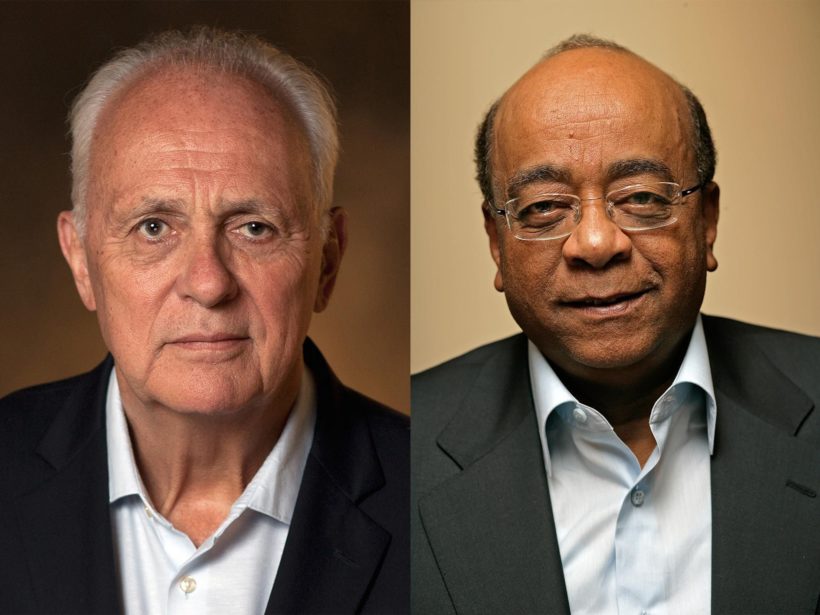
Momentum is now building behind the case for permanent G20 seat for the African Union. The grouping’s fundamental virtue is its ability to be representative: broader than the G7, but still small enough to fit around one table. It comprises twenty governments—19 major states plus the European Union—defined by their “systemic importance to the global economy”. Quite what “systemic” means is open to interpretation. That ambiguity helps to explain why Africa is home to almost one in five people in the world (and rising) but is represented in just one of the G20 seats: that of South Africa. By comparison Europe, home to under one in ten people, holds six of them: Germany, France, the UK, Italy, Russia, and the EU.
Proposed by Senegal last year, the idea of an AU seat was promptly endorsed by the US and French governments and Charles Michel, the President of the European Council. Its summit in February appointed Macky Sall, Senegal’s President, to negotiate it. On May 4th Germany’s Chancellor Olaf Scholz added his backing. The G7 summit declaration later last month also echoed the sentiment, albeit in more guarded language, and Brazil, China, and Indonesia are supportive too. Now the question is whether a consensus can emerge in time for the G20 Leaders’ summit hosted by India in September. The clock is ticking.
One player that could make a difference is the EU, if it speaks with one voice. It is the only existing G20 member that, like the AU, is an intergovernmental organization rather than a national government. And its backing would show that Europe as a whole supports the bid. The European Council summit on June 29th-30th would be the ideal moment for the EU to agree that united backing and, moreover, helpfully commit to supporting the AU consensus on how it should represent itself on the G20.
Some Europeans still have reservations. Would AU membership open a Pandora’s box of new membership bids, risking the G20 ballooning to an unwieldy size? And many African governments have taken an ambivalent stance on Russia’s invasion of Ukraine. Should Europe admit the AU without at least making that conditional on the bloc condemning this aggression?
These concerns are understandable but misplaced. Admitting the AU would be different from admitting a new country, as there are no other close international counterparts to the AU other than the EU itself. And although Russia’s war in Ukraine is of vast significance, it should not hinder equitable global representation for Africa. Trust in the West has been severely damaged across the low- and middle-income world by the perception of double standards over Covid-19 vaccines, the war, and accelerating debt crises in lower-income states. Europe must start by restoring it.
It must also keep sight of the bigger picture. Ours is a world of multiple inter-locking crises; of escalating economic, geopolitical, climate, and humanitarian emergencies reinforcing each other. Tensions between the US and China threaten at best a merely more fragmented global order, and at worst catastrophic conflict. Multilateralism is on the back foot and the Bretton Woods architecture looks ever-more outdated. How can we expect to tackle these crises without African voices at the table? The AU states easily qualify as systemically important. If they were a single country they would be the world’s ninth largest economy, and they play a decisive role in industries like critical raw materials. By the mid-century the continent will be home to one quarter of the world’s population, two-fifths of its newborn children, and fully half of its workforce. Nigeria alone will be on the cusp of overtaking the United States in size.
Europeans will feel the demographic boom and industrialization of the continent more immediately than most. Their own continent is aging, shrinking in relative global terms, and risks being squeezed by an all-consuming US-China contest. It will suffer if what remains of the multilateral order proves incapable of renewal, or if only groupings beyond it – like the BRICS – are involved in that order’s restoration.
These structural conditions all militate for Europe supporting an AU seat on the G20. The support itself would help build a trusting partnership of equals between Europe and Africa, and reset the stalled partnership between the EU and AU. The very fact of the seat would help Europeans and Africans forge a “third way” on global order, as Theodore Murphy of the European Council on Foreign Relations has argued, that rejects the duopolistic logic of that US-China contest and seeks a middle path. Amid growing competition for influence in the international system it would help Europe establish an enduring place for itself.
And it would aid the wider multilateralist cause; a modest step helping to build resolve for wider efforts. Other such examples include the Bridgetown Initiative to create new fiscal room for development and green investment, and the V20 grouping of finance ministers of especially climate-vulnerable economies. Think of these exercises in the art of the possible as a series of gears: smaller cogs that need to start turning for the larger wheels of multilateralist reform to creak into life. The campaign to bring the AU into the G20 is one of those cogs. At this month’s European Council summit, EU leaders have a chance to get it turning.